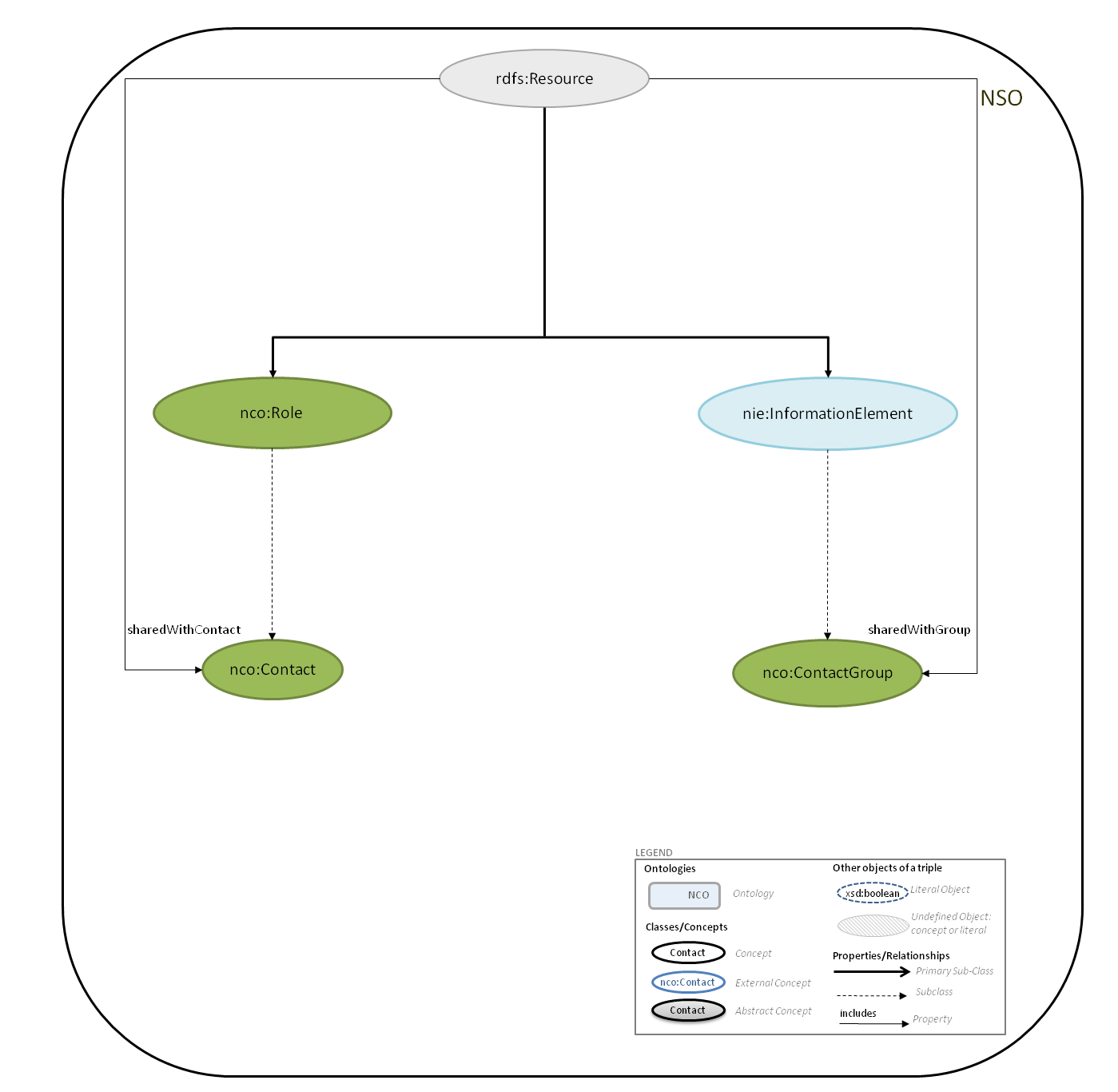Copyright © 2012 OSCAF®
The ontologies are made available under the terms of OSCAF software license
Abstract
The Nepomuk Sharing Ontology defines basic classes and properties for defining permissions with respect to sharing information in a network.
Status of this document
This document arose from
the work in KDE, acting upon the work done by Task-Force ontologies within the NEPOMUK project.
Ontology Visualisation
Ontology description
The Nepomuk Sharing Ontology defines basic classes and properties for defining permissions with respect to sharing information in a network.
References
Ontology Classes Description
Ontology Properties Description
sharedWithContact
| rdf:Property, rdfs:Resource |
| rdfs:Resource |
| nco:Contact |
| -- |
| -- |
| Description | The subject resource is shared with the object contact.
The resource and its subresources are transferred to the receiver.
An existing sharedWithContact relation implies that updates on the resource should be transferred to the contact.
The contact may ask for updates actively, then the sharing party's software should send a new copy of the shared resource to the contact.
Domain should be either a nie:InformationElement or a pimo:Thing but no DataObject. This includes ncal:Event instances and other resources we find on a desktop.
DataObjects are the specific binary stream where an Information Element is stored, and can't be shared because the recipient will form a new binary stream to store the data object.
As there is no superclass of both nie:InformationElement and pimo:Thing, the domain is rdfs:Resource.
One resource can be shared to multiple contacts, the cardinality is 0..n. |
sharedWithGroup
| rdf:Property, rdfs:Resource |
| rdfs:Resource |
| nco:ContactGroup |
| -- |
| -- |
| Description | The subject resource is shared with all contacts belonging to the object contact group.
The resource and its subresources are transferred to the receivers.
An existing sharedWithGroup relation implies that updates on the resource should be transferred to the members belonging to the group.
The contact may ask for updates actively, then the sharing party's software should send a new copy of the shared resource to the contact.
Domain should be either a nie:InformationElement or a pimo:Thing but no DataObject. This includes ncal:Event instances and other resources we find on a desktop.
DataObjects are the specific binary stream where an Information Element is stored, and can't be shared because the recipient will form a new binary stream to store the data object.
As there is no superclass of both nie:InformationElement and pimo:Thing, the domain is rdfs:Resource.
One resource can be shared to multiple contact groups, the cardinality is 0..n. |

